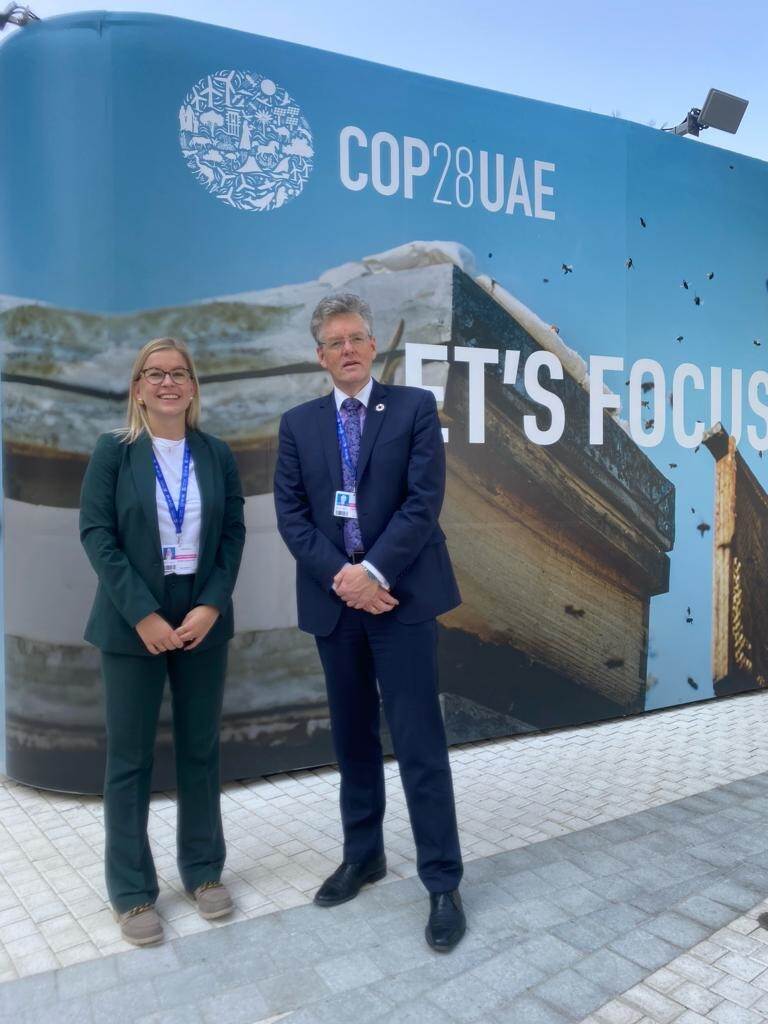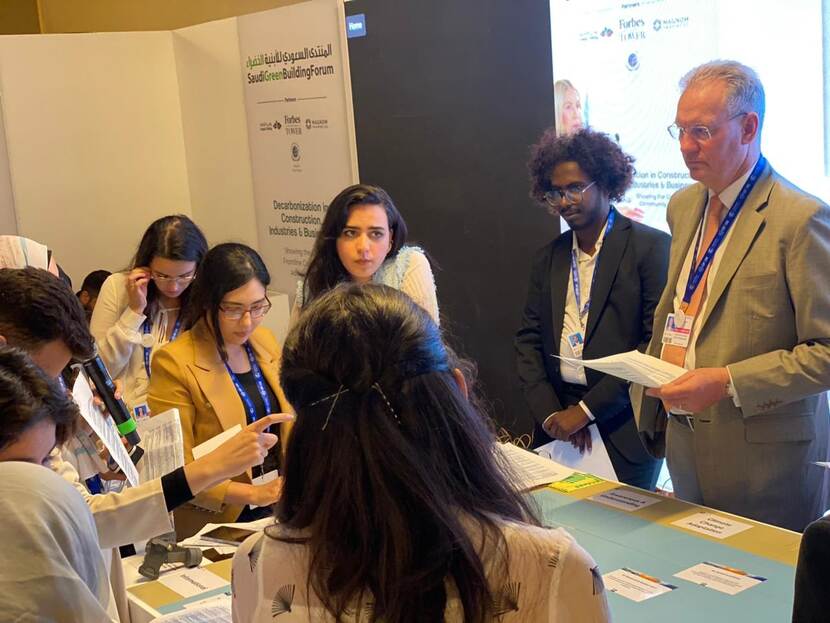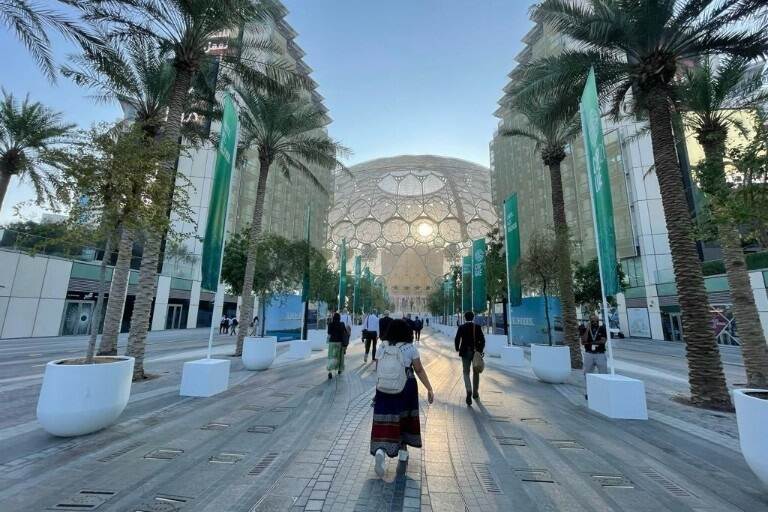Water issues in the MENA region are a central theme at COP28: ‘The water has practically run out.’
Weblogs
The COP28 World Climate Action Summit is taking place in the United Arab Emirates (UAE) from 30 November to 12 December. Water is a central theme at this important United Nations gathering. Jacob Waslander and Emma Moll are working for the Netherlands in the Middle East and North Africa (MENA) region, which includes the UAE. Here, they discuss the water issues they have encountered and what is being done at COP28 to reverse the trend.
Water scarcity
The MENA region includes over 20 countries in the Middle East and North Africa. Jacob has been working there for the Netherlands since 2021 and knows that the region’s concerns about climate are huge. He explains, ‘I’m the Dutch envoy to the Middle East and North Africa for water, energy and food. The biggest problem in this region is definitely water scarcity. There are countries here, such as Jordan, where the water has practically run out.’
Jacob continues, ‘But the water problems go hand in hand with the themes of energy and food. Take seawater desalination, for instance, which is done here on a large scale. It takes enormous amounts of energy. Countries that do a lot of desalinating can spend up to one-third of their available national energy supply on this.’
Energy transition
So it’s no accident that Jacob is working in Amman to develop water management and the transition to green energy in the Middle East and North Africa. He explains, ‘The Netherlands is trying to help countries in this region to make more efficient use of use the water that is still available, and to take steps towards making energy supplies greener.’

One of the ways the Netherlands is trying to do this is through embassies, Jacob explains. ‘Take for example the Dutch embassy in Beirut, Lebanon. The country is plagued by conflict and the government is struggling to function, yet Lebanon is making a tremendous transition to renewable energy. This transition was set in motion entirely by the private sector. Businesses took the lead when the country’s energy supply was more or less blacked out by the many conflicts. The alternative of using diesel generators was tremendously expensive, so a rapid transition was made to solar panels.’
‘The embassy is helping to make this possible’, Jacob continues. ‘They support certain change agents in the business community, who then train technicians so that the development can progress further.’
COP28
Initiatives like these will definitely be a subject of discussion during COP28. Young people will have a major voice at the summit, Emma is convinced. As a trainee with the Ministry of Infrastructure and Water Management, she works at the embassy in Amman. She explains: ‘COP28 is being held in Dubai, in an arid region that is already struggling with the effects of climate change. That’s why it’s important for young people from the Arab region to have a say.’

Given this situation, it’s no surprise to Emma that young people are taking action themselves. ‘Young people united in Arab Youth Green Voices are organising various events during the summit, in cooperation with The Hague Center for Strategic Studies and others. They have designed a Serious Game about water scarcity in their region. Through the game, participants learn more about the subject and discover that choices need to be made. In other words, this is the water theme, for and by young people.’ Jacob adds, ‘Tunisia has also given youth representatives a role as negotiators for their country at COP28. Genuine youth representatives, like the ones we have here in the Netherlands. That gives me hope,’ says Emma.
Climate funding
But this hope also needs to be turned into ambition. Not least with support from the business community, Jacob believes. He points out: ‘There will be lots of tough negotiating at this summit about the “global stocktake”. That means seeing how far we’ve progressed towards achieving the climate goals of the 2015 Paris Agreement. We already know that we’re far behind on achieving these goals and that we need to raise the bar a lot higher. Be bolder with climate ambition and scale up the action – that’s what we need now! So I’d like to hear what the IMF and World Bank – plus the international and regional business community and financiers (banks) – plan to do to help the countries that are having trouble with the climate goals. What you see in this region is that especially the middle-income countries really can’t get any further with achieving the goals. They lack financial scope to take the necessary steps, despite having the genuine will to do so.’
Jacob concludes: ‘Coming up with climate solutions is one thing, but they need financing, too. How do we ensure that a modest government contribution, a guarantee or private capital is deployed for, say, a new dam in Jordan? So that on the rare occasion when it rains, they can actually store the water? The answer to that question would automatically raise the bar higher!’
